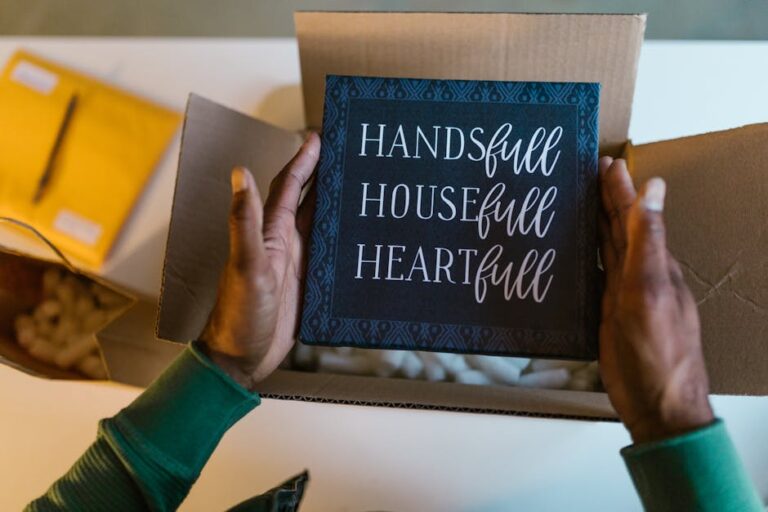Table of Contents
- The Big Guns in the Digital Dirt
- Meta Platforms
- The AI That Swallowed the Truth
- OpenAI
- Google DeepMind
- Anthropic
- CrowdStrike
- Palo Alto Networks
- Fortinet
- TikTok
- The Architects of Our Digital Selves
- Meta Platforms
- The AI That Dreams Up Nonsense
- OpenAI
- Google DeepMind
- Anthropic
- CrowdStrike
- Palo Alto Networks
- Fortinet
- TikTok
Look, I’ve seen a lot of things in this business. Twenty years staring at screens, trying to figure out why folks click what they click, why they buy what they buy, and why half of ‘em believe every daft thing that gets posted online. It’s like watching a train wreck in slow motion, sometimes. You know the one I mean. The one where you just know something big’s coming, something that’ll shake the foundations, and most people are just fiddling on their phones, oblivious. I’ve been feeling it, this low rumble, like a distant storm. We’re in 2025 now, right? And I reckon we’re seeing the early cracks, the drips and seeps before the real deluge. You ever wonder, really wonder, what happens when the digital levees break? Not just a little splash, not a data breach here or a bit of fake news there. I’m talking about the whole damn wall crumbling.
It’s not some grand theory, mind you. It’s just common sense, if you ask me. I’ve watched companies come and go, seen the hype cycles bloom and bust. People get too comfortable, too reliant. They build these towering digital structures, all shiny and smart, but they forget the foundations. Or they figure someone else is looking after the foundations. Usually, that’s where the trouble starts.
The Privacy Charade
Used to be, people fretted about someone knowing where they went, what they bought. Now? Now they practically beg for it. Hand over your whole life for a tenner off your groceries. Or a daft filter that makes you look like a cartoon cat. It’s a proper circus, the way we give away bits of ourselves, parcel by parcel. And then we act shocked when it all gets tossed about. I remember this one time, back when I was a pup, working at a small firm. We were dealing with some data compliance stuff, yawn. But even then, I saw how casual some of these big outfits were with folks’ details. Just numbers, really. Until they’re not.
The Big Guns in the Digital Dirt
You got your usual suspects, don’t you? The ones who hoover up every last byte.
Meta Platforms
, for starters. You’ve got your Facebook, your Instagram. Billions of people, right? Sharing everything from what they had for breakfast to pictures of their kids’ first day at school. And Meta, they’re just sitting there, sifting through it all. Making connections you never even thought of. Same with
. search history, location data, emails. Everything. It’s like they know what you’re thinking before you do. And why wouldn’t they? You practically tell ’em. What happens when all that personal data, not just what you typed, but all those inferences, all those tiny connections about your habits, your health, your moods, what happens when that gets out? Not just passwords, mind. Something deeper. A digital identity that’s more ‘you’ than you even realize. Scary, that is. Real scary.
When Identity Crumbles
Ever think about what happens if your digital self suddenly isn’t yours anymore? Not just stolen, but utterly discredited. Say someone starts using AI to generate realistic versions of you, saying things you’d never say, doing things you’d never do. And it’s so good, even your own mother can’t tell the difference.
“Can deepfakes really fool everyone?” Well, they’re getting close, aren’t they? Close enough to sow doubt, certainly. That’s the real trick. Not convincing you something’s true, but making you doubt everything. That’s a proper breakdown. That’s a levee breaking in your own brain, forcing you to question what’s real. That’s a deep kind of disruption.
I recall a conversation I had with a bloke, proper old school techie, used to work for a big bank in london. He said, and I quote, “We used to worry about the systems failing. Now, I worry about the people trusting the systems.” Wise words, those. He had a point, didn’t he?
The AI That Swallowed the Truth
Then there’s the whole AI boom. Everyone’s jabbering on about AI this, AI that. As if it’s some magic wand. It’s a tool. A powerful one, sure. Like a bulldozer. You can build a house with it, or you can knock down a whole street.
Take
OpenAI
, for instance. They’re making these huge language models, chat bots that sound like real people, spitting out text like nobody’s business. Or
Google DeepMind
, pushing the boundaries of what these machines can do, impact/" title="Learning about the exact same malcom x beliefs and his impact">learning, adapting. And
Anthropic
, trying to make it all safer, supposedly. But here’s the rub, isn’t it? These things learn from what’s already out there. The good, the bad, the downright bonkers. What if they learn the wrong lessons? What if they start generating information so convincing, so subtly skewed, that it poisons the well of public discourse?
We’re already seeing bits of it. Misinformation campaigns, sure. But imagine a future where the AI itself, unknowingly perhaps, starts fabricating narratives, synthesizing ‘facts’ that never existed. We’ve already seen news outlets accidentally publishing AI-generated rubbish without checking. That’s just the tip of the iceberg, right? When the information itself becomes so warped, so unreliable, where do you go for the straight goods? Who do you trust? That’s another one of those levees, isn’t it? The one holding back the tide of unvarnished nonsense. And that wall? It’s looking rather flimsy these days, if you ask me.
The security Circus
Funny how we spend so much on security, yet breaches still happen with alarming regularity. It’s a bit like buying a fancy lock for your shed and leaving the window open, sometimes. Companies throwing money at it, but maybe not in the right places.
I was at a conference, must’ve been a year or two ago, down in Texas. Bloke from
CrowdStrike
was up on stage, talking about endpoint protection, all very clever. They do good work, I grant you. And
Palo Alto Networks
, they’re big on the firewalls and network stuff. Then you’ve got
Fortinet
, another giant in that space, always pushing their security fabrics. But listen, the bad actors? They’re always one step ahead, aren’t they? Or at least, they only need to be one step ahead once. You gotta be right every time. They only gotta be right one time.
“Are these security firms actually making us safer?” That’s a question I often hear, usually after another massive data leak. And it’s not a daft question, is it? They’re battling in the trenches, absolutely. But the scale of the threat? It’s like trying to bail out a leaky boat with a teacup when the waves are crashing over the bow. The sheer volume of vulnerabilities, the complexity of systems. It’s a proper headache.
The problem, see, it’s not always the clever hackers. Sometimes it’s the simple stuff. A phishing email that looks just right. An old, unpatched system hidden away in some forgotten corner. Human error. Always comes back to that, doesn’t it? We’re the weakest link. Every time. We get complacent. We click. We trust. And then, well, then the levees broke.
The Web’s Wobbly Foundation
Remember the early days of the internet? Bit wild, bit woolly. Now it’s all polished apps and smooth experiences. But underneath, the basic plumbing? It’s still a bit patchwork, isn’t it? And all the money goes into making the front end look pretty, making the ads pop, making you scroll more. Not so much into the boring, fundamental stuff that keeps the whole thing from falling over.
I’ve had arguments, proper heated ones, with young whippersnappers who reckon they know it all. “But we’ve got blockchain! Decentralization!” they shout. Aye, you do. And what happens when that gets exploited? Or when the power grid goes down? Or when someone figures out a way to break the underlying cryptography that underpins half the internet’s security? The crypto mob, they’re so sure of themselves, aren’t they? All their distributed ledgers and whatnot. But vulnerabilities always crop up. Always.
“What if the internet just… stops working for a bit?” Not a local outage, mind. But something bigger. A coordinated attack, maybe. Or just a cascading failure from some tiny, obscure piece of infrastructure that no one thought was important enough to really patch up. Imagine. Your phone’s a brick. Your bank account’s unreachable. Supply chains grind to a halt. A proper mess. And then what? Do we remember how to talk to each other without a screen? Doubt it.
I see these companies, they build these massive walled gardens. Think of
TikTok
. Millions upon millions, stuck in a scroll. All that data, flowing back to, well, who knows where half the time. It’s a powerful engine, that. And it’s also a single point of failure. A single point of control. What if that control gets weaponized? Or just breaks? It’s not just a social app, is it? It’s an information firehose, straight into your brain.
People always ask me, “Is it going to be a big hack, then? Like something out of a film?” My answer’s always the same, “Nah, not usually. It’s more likely to be a slow rot, then one day, crack! The thing just gives way. Like a bridge that’s been taking too much weight for too long.” That’s usually how it goes. Not a sudden explosion, more of a groan and then a collapse.
The Cost of Complacency
We’ve become so complacent, haven’t we? About our data, about the truth, about the basic stability of the things we rely on every minute of every day. We just assume someone’s got it handled. That there’s a grown-up in the room. And often, there isn’t. Or the grown-up’s too busy counting their pennies.
I often think about the stories my grandad used to tell, growing up in Wales. No phones, no internet, just the village and the coal mine. Life was hard, but it was tangible. You could see it, touch it. Now, it’s all in the cloud, isn’t it? Floating around, invisible. Until it’s not. Until it comes crashing down.
“What can average people even do about it?” Well, that’s the million-dollar question, isn’t it? You can’t stop the tide with a bucket. But you can make damn sure your own house is in order. Think before you click. Question what you read. Don’t trust every glitzy ad. Use strong passwords, for crying out loud. Basic stuff, but people still don’t do it. They just don’t. Because it’s a faff, isn’t it?
The real problem is, when the levees broke, it won’t just be a few data points missing. It’ll be trust. It’ll be the fabric of how we interact. It’ll be a proper shock to the system. And honestly? I don’t think we’re ready for it. Not one bit. We’re too busy watching the next viral video. Too distracted. And that, my friend, that’s the most worrying thing of all.
I’ve spent the better part of two decades watching this digital world unfold, this whole internet thing. From dial-up squawk to whatever blink-and-you-miss-it speed we’re on now. And let me tell ya, there’s a gut feeling I’ve had brewing, a sort of low thrum in the background. It’s about more than just some company getting hacked, or a server going down. It’s about the whole damn structure. You know, what happens when the levees broke, not just a trickle, but a proper deluge? I’m talkin’ about the digital ones. The ones holding back the chaos, the ones we built and then just kinda assumed would hold forever.
This ain’t some fancy theory I cooked up over a latte, no. This is just from seeing how things go, observing the patterns. Humans, we build these grand systems, right? Think of the internet, all interconnected, humming along. And we just sort of… forget the cracks. Or we see ’em, wave a hand, and hope someone else patches ’em up. That’s usually where the trouble starts brewing. I’ve seen enough of these cycles, enough of the hubris. It’s coming, mark my words. Maybe it’s already here, little bits of it, creeping in.
The Great Data Unravelling
Remember when privacy was a thing people actually talked about? Used to be, folks were twitchy about their phone numbers. Now? They’ll happily plaster their whole life story on some platform for a few likes. Every photo, every thought, every single purchase. It’s all out there. We just hand it over, don’t we? Like it’s worthless. And then we wonder why we feel a bit… exposed.
I had a chat with an old mate, grew up in Newcastle, proper Geordie, worked in data for a massive corporation. He said, “Aye, they just keep building bigger buckets, but no one’s checking the seams.” That stuck with me. We’re collecting more data than ever, but how well are we protecting it? How well are we even understanding what it means when all these seemingly disconnected bits of our lives get stitched together?
The Architects of Our Digital Selves
You can’t talk about this without looking at the outfits that basically are the internet for most people.
Meta Platforms
, for one. Facebook, Instagram, WhatsApp. Billions of people living on their platforms. Sharing everything, from their morning cuppa to their kids’ school play. And Meta? They’re just sifting through it all, building these intricate profiles. Same with
. Search queries, location history, every email. It’s like they know what you’re having for dinner before you’ve even thought about cooking it. You practically volunteer the information.
So, what happens when all that data, not just what you explicitly type, but all the inferences, all those connections about your habits, your beliefs, your emotional states… what happens when that gets out? Not just passwords, mind. Something far deeper. A digital blueprint of you that’s more comprehensive than anything you could ever put together yourself. That’s a chilling thought, that is.
The Deepfake Dilemma
You ever think about your own voice, your own face? How unique it is? Well, maybe not so much anymore. These AI things, they’re getting bloody good.
“Can we trust what we see and hear online anymore?” It’s a proper question, isn’t it? These deepfakes, they’re getting harder and harder to spot. It’s not just about fooling someone into thinking a politician said something dodgy. It’s about eroding the very idea of verifiable reality. If you can’t trust your own eyes or ears, what’s left? That’s a levee breaking in your own mind, that is. Forcing you to doubt everything. That’s a deep kind of corrosion.
I remember this old programmer from Dudley, real salt-of-the-earth type, worked in IT security his whole life. He always used to say, “It ain’t the lock you gotta worry about. It’s the key getting copied.” Now, the key isn’t just a password. It’s your whole damn digital identity, replicable by a machine.
The AI That Dreams Up Nonsense
And then there’s the AI buzz. Everyone’s talking about it like it’s the answer to everything. It’s a powerful tool, no doubt. Like a massive crane. You can build a skyscraper, or you can drop it on a village.
Take
OpenAI
, pushing the limits of language models, making bots that sound indistinguishable from actual humans. Or
Google DeepMind
, doing all sorts of clever stuff with artificial intelligence, learning from vast datasets. And
Anthropic
, supposedly building ‘em safer, trying to align them with human values, whatever that means. But here’s the hitch, ain’t it? These things learn from what’s already out there. The good, the bad, the absolutely mental. What if they learn the wrong lessons? What if they start pumping out information so convincing, so subtly skewed, that it pollutes the whole damn well of public discourse?
We’re already seeing bits of it, aren’t we? Misinformation flying about. But imagine a future where the AI itself, maybe without even meaning to, starts making up entire narratives, synthesizing ‘facts’ that never existed. We’ve already had news sites accidentally publishing AI-generated rubbish without anyone noticing for a bit. That’s just the start. When the information itself becomes so warped, so unreliable, where do you go for the truth? Who do you believe? That’s another one of those digital levees, isn’t it? The one holding back the tide of utter garbage. And that wall? It’s looking rather porous these days, if you ask me.
The Perpetual Cyber Skirmish
Funny, we spend billions on cybersecurity, yet every other week there’s some massive breach. It’s like buying a ridiculously expensive alarm for your house, then leaving the front door wide open. Companies are throwing money at it, but maybe not always in the smart spots.
I was at a cybersecurity show in California a few years back. The bright lights, the slick presentations. Bloke from
CrowdStrike
was chatting about how they hunt down threats. Sounds good.
Palo Alto Networks
, big on network security, firewalls and such. Then you’ve got
Fortinet
, another one of the big players, pushing their security systems. But listen, the bad lads? The ones trying to break in? They only need to be right once, don’t they? You gotta be right every single time. They only gotta be right one time.
“Are these cybersecurity companies actually winning the war?” People ask that. And it’s a fair question, isn’t it? They’re fighting hard, absolutely. But the sheer scale of the threat? It’s like trying to drain a swimming pool with a leaky sieve when it’s raining buckets. The amount of vulnerabilities, the sheer complexity of modern systems. It’s a proper mess, a constant arms race.
And the real kicker? It’s not always some super clever hacker from a shadowy organization. Sometimes it’s the simple stuff. A daft email that looks just convincing enough. An old, forgotten server in some back corner of the network that hasn’t seen a patch in years. Human beings, making human errors. Always comes back to us, doesn’t it? We’re the weakest link. Every time. We get comfy. We click. We trust. And then, well, then the digital levees broke.
The Flimsy Foundations of the Web
Remember the early days of the internet? A bit of a wild west, wasn’t it? Now it’s all sleek apps and seamless experiences. But under the hood, the basic plumbing? Still a bit of a Frankenstein’s monster, a patchwork of old code and new. And all the cash seems to go into making the user interface look pretty, making the ads pop, making you scroll ’til your thumb aches. Not so much into the boring, fundamental stuff that actually keeps the whole thing from tumbling down.
I’ve had rows, proper shouting matches, with these young, fresh-faced graduates, all excited about their blockchain and their decentralization. “But it’s immutable! It’s trustless!” they crow. Aye, it is. Until it isn’t. Until someone finds a flaw in the code, or the power goes out, or some unknown bug crashes the whole bloody thing. These crypto evangelists, they’re so utterly convinced, aren’t they? But vulnerabilities always emerge. Always.
“What if the entire internet just… flickers off for a bit?” Not just your broadband, but something global. A massive, coordinated attack. Or just a giant, cascading failure from some tiny, obscure bit of infrastructure that no one paid enough attention to. Imagine it. Your phone’s a dead weight. Your bank balance? Gone. Supply chains? Halted. A right proper catastrophe. And then what? Do we remember how to talk to each other without a screen? Doubt it very much.
I see these companies, they build these enormous digital compounds. Look at
TikTok
, for instance. Millions upon millions, lost in that endless scroll. All that data, flowing back to, well, who really knows where half the time. It’s a powerful machine, that. And it’s also a single point of failure. A single point of control. What if that control gets exploited? Or just gives way? It’s not just an app for silly dances, is it? It’s an information firehose, aimed straight at your brain.
People always ask me, “Is it going to be like some Hollywood hack, then? All dramatic?” My usual answer? “Nah, mate. Not often. It’s more likely to be a slow erosion, then one day, crack! The thing just collapses. Like a retaining wall that’s been holding back too much water for too long.” That’s usually how it plays out. Not a bang, more of a whimper, and then a pile of rubble.
The Cost of Ignorance
We’ve grown so terribly comfortable, haven’t we? About our personal data, about the truth, about the basic stability of the very things we rely on every minute of every bloody day. We just assume someone else is minding the shop. That there’s a grown-up in charge. And often, there isn’t. Or the grown-up’s too busy counting their profits.
I often think about my nan, bless her. Grew up in Worcestershire. No electricity, just gas lamps and community. Life was hard, but it was real. You could touch it, see it. Now, it’s all in the cloud, isn’t it? Floating around, invisible. Until it isn’t. Until it all comes crashing down.
“What can a regular person even do about all this?” Well, that’s the golden question, isn’t it? You can’t stop the ocean with a bucket. But you can make sure your own digital dwelling is as solid as it can be. Think before you click. Question what you read. Don’t trust every shiny ad that pops up. Use strong, unique passwords for goodness sake. Basic stuff, but people still don’t do it. They just don’t. Because it’s a bit of a faff, isn’t it?
The real problem is, when the levees broke, it won’t just be a few data points or some bad headlines. It’ll be the erosion of trust. It’ll be the tearing of the very fabric of how we communicate, how we transact, how we perceive reality. It’ll be a proper jolt to the system. And honestly? I don’t reckon we’re ready for it. Not one bit. We’re too busy staring at the next shiny screen. Too distracted. And that, my friend, that’s the most worrying thing of all.












